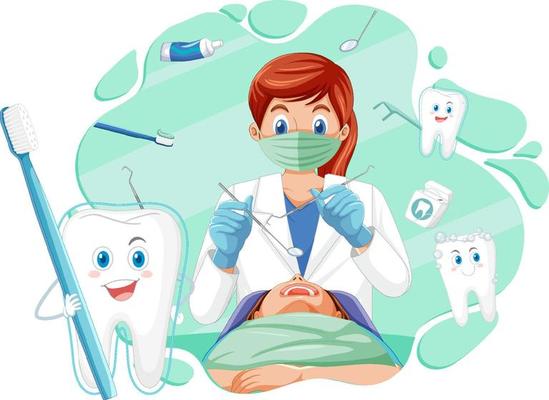Economical Dental Care Options from Leading Dentists Eugene
Discover Common Dental Issues That Dentists Can Treat Efficiently
Oral wellness is an important facet of overall well-being, yet usual concerns such as dental caries, gum tissue illness, dental caries, tooth sensitivity, and misaligned teeth typically go without treatment. Each of these conditions can dramatically influence not just oral health but additionally everyday comfort and confidence. Advancements in oral treatment have made it feasible for dental practitioners to attend to these problems properly with various therapies. From routine cleansings and dental fillings to orthodontic interventions, the options available today are both available and thorough. What are the certain treatments offered, and exactly how can they restore optimal oral health?
Cavities
Tooth cavities, also understood as oral decays, are one of the most widespread oral issues affecting individuals of every ages. They occur when the enamel, the hard external surface of the teeth, is worn down by acids generated by microorganisms in the mouth. These bacteria flourish on sugars and starches from food and drinks, producing a sticky movie called plaque that sticks to the teeth - dentists eugene. With time, the acids in plaque can develop tiny openings or holes in the enamel, resulting in cavities.

Preventative actions are crucial in combating cavities. These include preserving excellent dental health techniques such as normal brushing with fluoride toothpaste, flossing, minimizing sugar consumption, and attending routine dental check outs. By adhering to these techniques, people can dramatically reduce their danger of establishing tooth cavities and preserve ideal dental wellness.
Gum Disease
Gum condition, additionally referred to as gum illness, is an extensive condition that affects the tissues bordering and sustaining the teeth. It mostly happens because of the build-up of plaque, a sticky film of bacteria that bases on the teeth. If not eliminated via routine brushing and flossing, plaque can set right into tartar, which can only be removed by an oral professional.
There are 2 major stages of gum disease: gingivitis and periodontitis. Gingivitis is the initial, milder kind, characterized by red, puffy periodontals that may hemorrhage conveniently. At this stage, the problem is commonly relatively easy to fix with appropriate oral hygiene and specialist oral cleansings. If left without treatment, gingivitis can progress to periodontitis, an extra serious form that can cause loss of the bone that supports the teeth.
Periodontitis entails deeper infection and inflammation of the gums, causing the gum tissues to draw away from the teeth and develop pockets that can end up being contaminated. Therapy for periodontitis commonly involves scaling and origin planing, a deep-cleaning treatment to get rid of tartar and microorganisms from under the gums. In even more advanced situations, surgical interventions might be required to recover periodontal and bone health. Normal dental examinations are important for very early discovery and effective monitoring of gum tissue disease.
Dental Cavity
Tooth degeneration, a widespread oral issue, manifests when the difficult surface of the tooth, understood as enamel, is harmed by acids generated by bacteria in plaque. This process begins when sugary and starchy foods are taken in, supplying a breeding place for microorganisms. These bacteria metabolize the sugars to create acids, which ultimately deteriorate the enamel, leading to dental caries.
Originally, dental cavity could be asymptomatic, yet as it proceeds, it can lead to visible holes or pits in the teeth, toothache, and level of sensitivity to warm, cold, or sweet substances (dentists eugene). If left without treatment, the degeneration can permeate much deeper layers of the tooth, getting to the dentin and ultimately the pulp, creating extreme pain and potentially leading to abscesses or infections
Very early intervention is critical for ideal outcomes, making regular oral check-ups crucial for dealing with and identifying imbalance concerns immediately. Through personalized therapy strategies, dental professionals can properly restore both view publisher site the performance and look of a patient's smile.
Verdict
In summary, attending to usual oral problems such as tooth cavities, gum tissue disease, dental caries, tooth level of sensitivity, and misaligned teeth is critical for maintaining oral health and wellness and capability. Dentists are outfitted to identify and deal with these problems effectively with various treatments, including fillings, cleanings, orthodontics, and precautionary treatment. Prompt and ideal therapy can reduce the threats connected with these oral problems, consequently enhancing general dental health and wellness and top quality of life.
Oral health and wellness is an essential check this facet of total health, yet usual problems such as dental caries, gum illness, tooth degeneration, tooth sensitivity, and misaligned teeth typically go untreated.Tooth degeneration, a common dental issue, shows up when the tough surface area of the tooth, understood as enamel, is harmed by acids produced by germs in plaque. Preventative actions such as regular dental examinations, excellent dental health methods, and a balanced diet regimen are critical in alleviating the danger of tooth decay.
Common elements consist of enamel disintegration due to hostile cleaning, acidic food intake, or dental conditions such as periodontal recession and tooth degeneration.In recap, dealing with usual oral problems such as dental caries, periodontal disease, tooth degeneration, tooth sensitivity, their website and misaligned teeth is essential for preserving oral wellness and functionality.